Canada continues to be a top destination for individuals seeking better opportunities for work, education, and quality of life. However, the country is currently facing significant challenges due to rising immigration inventories and backlogs. Recent data from Immigration, Refugees, and Citizenship Canada (IRCC) shows over 2.3 million applications awaiting approval across various immigration categories, which has slowed the processing system and created delays for many applicants.
For those planning to move to Canada, understanding the current situation, its causes, and what steps to take is crucial. Here’s a breakdown of the key issues surrounding the growing backlogs and what this means for prospective immigrants.
The Current State of Immigration Backlogs in Canada
As of the latest IRCC report, approximately 2,364,700 immigration applications are pending review across three major categories: permanent residence, temporary residence, and citizenship. Unfortunately, only 57.6% of these applications are currently being processed within the standard timelines set by the IRCC. The department aims to process 80% of applications within its guidelines, but the growing backlog reveals a significant gap between expectations and reality.
A Closer Look at the Numbers:
- Temporary Residence Applications: This category includes visas for visitors, students, and workers. Alarmingly, 49% of temporary residence applications are in the backlog, meaning they have exceeded the expected processing time.
- Permanent Residence Applications: For those seeking to make Canada their permanent home, 39% of these applications are experiencing delays that surpass standard timelines.
- Citizenship Applications: Even for individuals applying for Canadian citizenship, 17% of applications are delayed, contributing to the overall backlog problem.
What’s Behind the Surge in Backlogs?
Several factors are contributing to the growing immigration backlogs:
- High Volume of Applications: Canada’s appeal as a destination for work, education, and family life continues to grow, leading to a surge in immigration applications. The higher-than-expected volume has placed immense pressure on the IRCC’s processing capabilities, resulting in delays across the board.
- Complex Cases Requiring Extra Review: Some immigration applications require more detailed scrutiny, such as those needing additional security clearances, medical examinations, or legal documentation. These cases take longer to process and further contribute to the growing backlog.
- Global Events and Economic Shifts: Crises such as humanitarian emergencies, geopolitical conflicts, and global economic shifts often lead to sudden increases in migration. This influx creates an unpredictable surge in applications, which further strains the system’s ability to handle cases in a timely manner.
Canada’s Response: Tackling the Backlogs
Despite the challenges, Canada remains committed to addressing the growing backlog and improving its immigration system. Several steps have been taken to increase processing capacity and reduce delays, including:
- Hiring More Staff and Enhancing Technology: The IRCC is increasing its workforce and leveraging technology to automate and speed up the review of applications. Investments in artificial intelligence and digital platforms aim to streamline the process and clear applications faster.
- Prioritizing High-Impact Cases: The Canadian government has started prioritizing certain immigration applications that have a greater economic and social impact. Programs such as skilled worker visas, family reunifications, and business visas are receiving faster processing times as part of this effort.
- Introducing Flexible Policies and New Programs: Canada has also rolled out new pilot programs aimed at attracting more diverse immigrants, such as caregivers, Francophone communities, and those settling in rural areas. These programs not only offer alternative pathways to immigration but also help distribute the application processing workload more evenly across regions and categories.
- Collaborating Across Government Levels: Coordination between federal, provincial, and territorial governments ensures that immigration policies are aligned and that resources are effectively deployed. This collaboration is crucial for managing the high volume of applications in a more organized manner.
Implications for Applicants: What You Can Do
For individuals looking to immigrate to Canada, the current backlogs can cause delays and uncertainty in planning their futures. Whether you’re a student, worker, or family member seeking reunification, it’s important to take proactive steps to navigate the system more smoothly:
- Submit Complete and Accurate Applications: One of the most effective ways to avoid delays is to ensure your application is complete and accurate from the start. Missing documentation or incorrect information can cause your application to be delayed or returned, adding to your wait time.
- Stay Informed About Processing Times: Regularly check for updates from the IRCC regarding changes in processing times or new policies that may impact your application. Being aware of current trends can help you plan better and adjust your expectations.
- Consult with Immigration Experts: Working with immigration consultants or legal experts can provide invaluable guidance in ensuring your application is properly prepared and submitted. Experts can also help you navigate complex cases and offer advice on how to expedite your process.
Looking Forward: Canada’s Immigration Outlook
Canada remains a highly desirable destination for immigrants despite the current challenges with backlogs. The country’s efforts to enhance its immigration system through increased staffing, technological advancements, and policy reforms show its commitment to maintaining an open and efficient system. While delays are frustrating, staying prepared and informed can help applicants successfully navigate the immigration process.
Ultimately, while the backlogs highlight the current strain on Canada’s immigration system, the country continues to offer immense opportunities for those seeking a new life.




